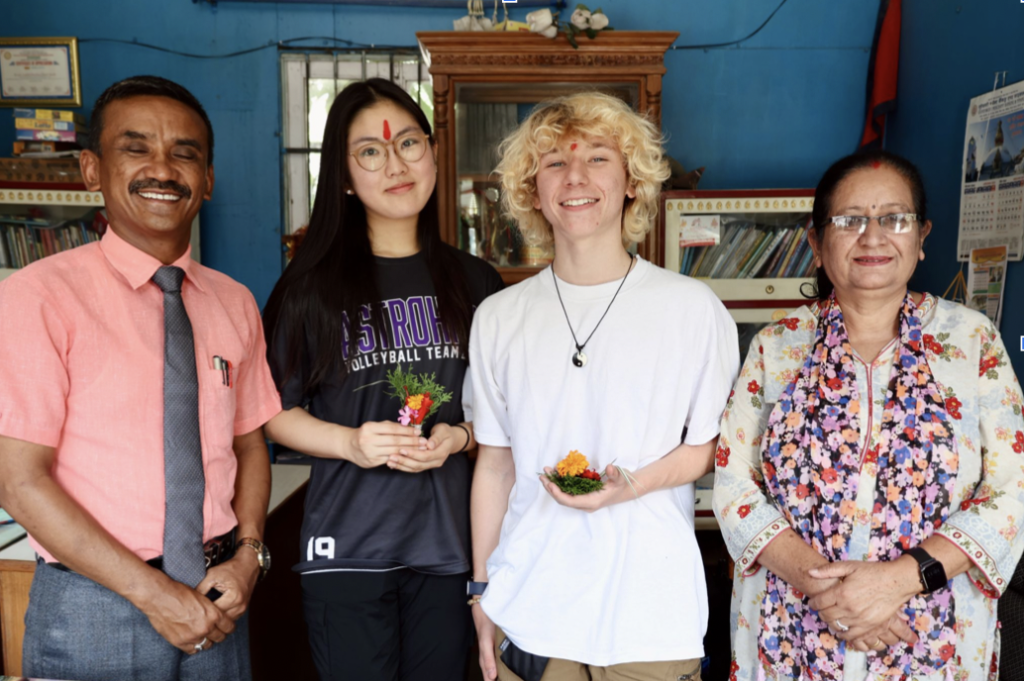Conservation Service Learning Programme in Nepal
On arrival day, a UniHawk staff member will welcome and collect you from the Tribhuvan International Airport (KTM) in Kathmandu. The group will then be taken by private bus to their accommodation (Nana Jungle Resort), depending on arrival time.
After students have settled in, they receive a comprehensive project induction that provides volunteers with a deep understanding of the initiatives and objectives of the project in Nepal. This orientation also offers valuable insights into Nepali culture, customs, and traditions, allowing volunteers to immerse themselves fully in this beautiful country.
The group will also be shown the local area and then taken to the project site to get to know the facilities and discuss expectations and schedules.
Students will work in the Community Forest Buffer Zone next to Chitwan National Park during their time in Nepal. Here they will learn from conservation experts and take part in a variety of tasks such as:
To ensure that future generations carry on with important conservation work, the group will conduct outreach in local schools. These conversations aim to inform children of the importance of protecting animals in Nepal. To do this, volunteers will::
Today, the students will spend the day traveling to Kathmandu! The journey takes about six hours, so the group will depart early in the morning and arrive just in time for a delicious lunch.
In the afternoon, they will immerse themselves in Nepal’s rich cultural heritage with a visit to the iconic Swayambhunath, also known as the Monkey Temple. Here, they can appreciate the breathtaking architecture and enjoy panoramic views of the Kathmandu Valley.
To wrap up the afternoon, students will embark on a shopping adventure in the lively streets of Thamel, followed by dinner at Hotel Moonlight.
In the evenings, students will explore the local area, go shopping in the nearby markets, and watch a very special cultural show put together by the local Thakuru people. During their stay, students will also be able to try traditional Nepali meals. Through food, we believe people can learn a lot about a culture. So, the group will be invited to take part in a traditional cooking class to learn how to make Momo, a type of dumpling.

We offset 100% of carbon emissions associated with your in-destination transport. We’re committed to being fully climate-positive by 2024!
By travelling with us, you’re making a positive contribution to the economies of communities around the world and supporting local jobs.
If you have any doubts or questions we are at your disposal, fill in the form and we will get back to you as soon as possible.
Concord Tower, 11th Floor – Al Sufouh,
Dubai Media City, Dubai – United Arab Emirates.
Contact Numbers
Email Address
Important Links